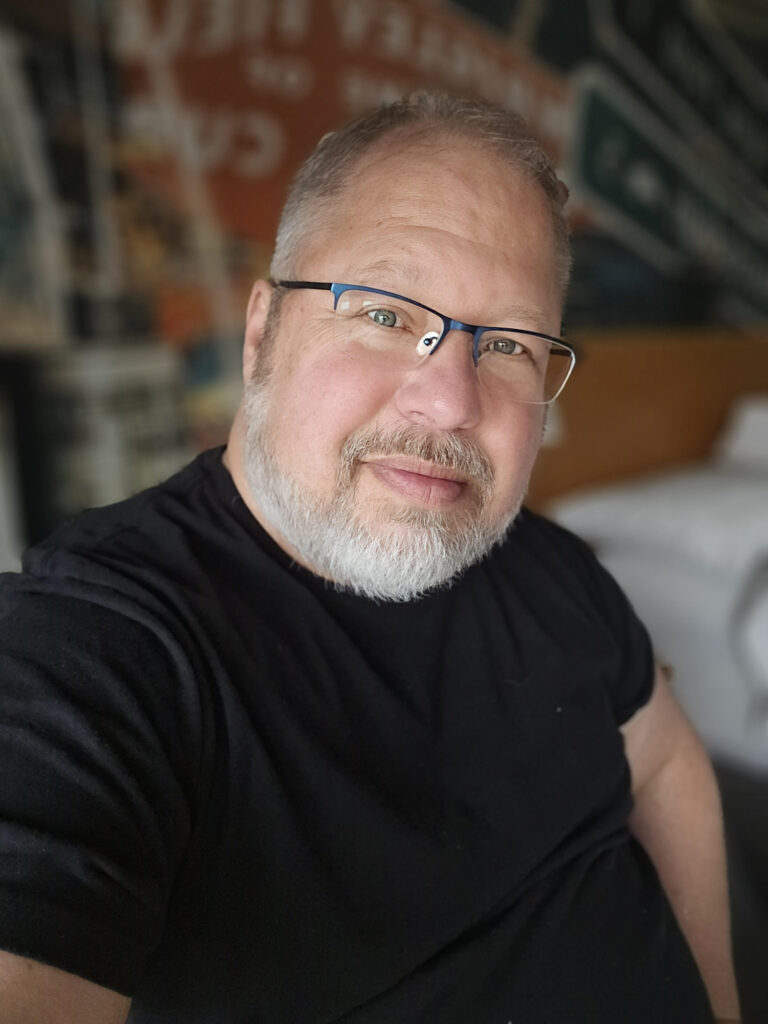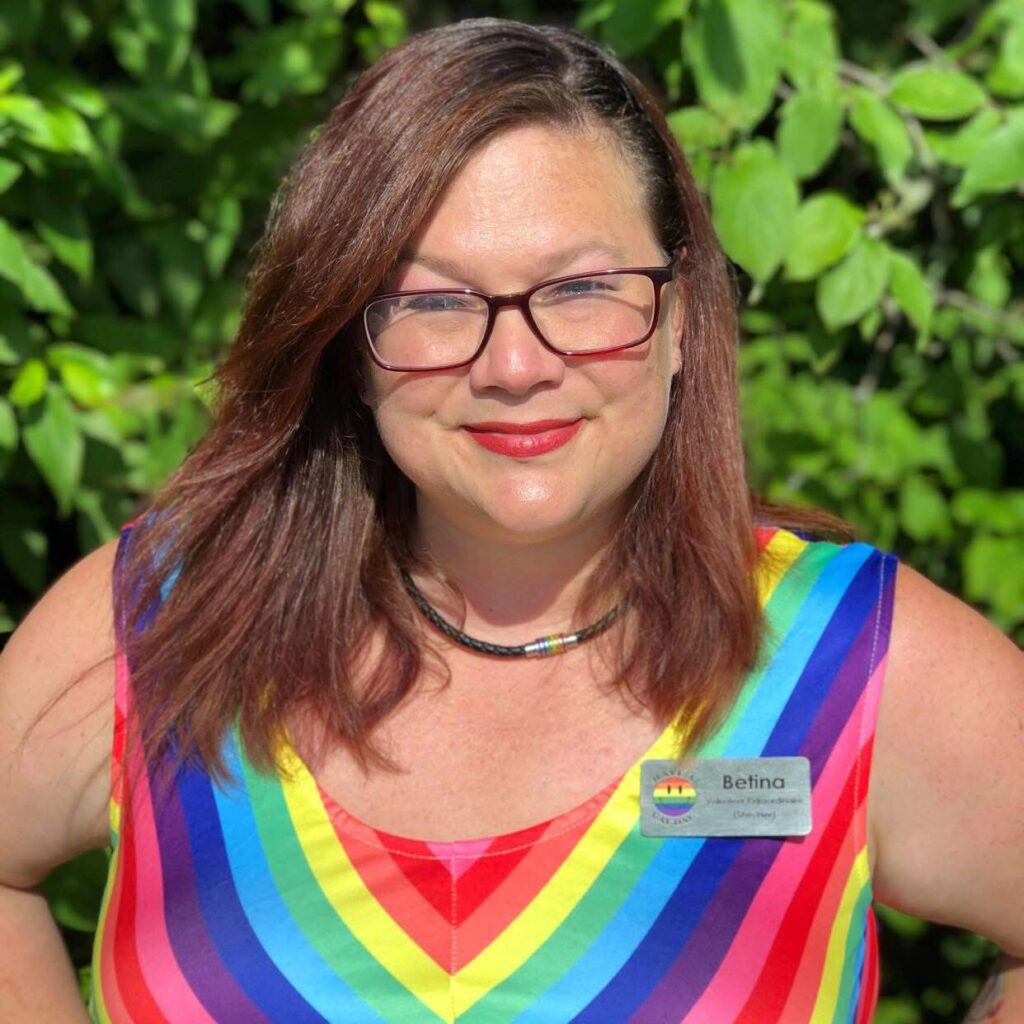On June 26, 2015, same-sex marriage was legalized in the United States, with the Supreme Court’s ruling in Obergefell v. Hodges.
For many years, people in the LGBTQ+ community had to explain that their relationships are as valid as those of heterosexual ones. However, this ruling validated this notion in the eyes of the law.
To Rick Flynn, the executive director of the Greater Dayton LGBT Center, this ruling gave credibility to his relationship that was not there before.
Flynn has worked in non-profit for 25 years in different aspects, including volunteer management and event management. In the fall of 2022, he became the executive director of the LGBT Center.
When same-sex marriage was legalized, Flynn remembers feeling joyful and something that he never thought could happen had finally happened. He also thinks it brought legitimacy to LGBTQ+ love.
Marriage equality not only changed the lives of LGBTQ+ individuals and families but also helped them feel a little more in common with each other. Most people got married right away since they had been in long-term relationships and were unable to get married, which was opened the door they were waiting for.
“Suddenly, it became sort of this group of the married folks within the LGBTQ+ community. If there was sort of a bond that developed with people, and for younger people to be able to see that that’s an option, and that people do sometimes stay together for a long time. We do not see that a lot in general, but it’s nice to be able to see it happen within a community that people never thought could happen,” Flynn said.

Flynn went on to give an example of a same-sex married couple that has been together for 50 years, showcasing that a same-sex relationship can work in the long term as well.
This ruling also impacted the way that most of the homosexual couples were viewed within the broader Dayton community; even though there are people who will always look at those different from them and criticize them, most of the couples were considered in the same way as any heterosexual married couple.
“It adds a little bit more legitimacy and a little bit more recognition that there’s a relationship there. Before we got the legitimacy of marriage, I think people just kind of thought that it was not as valid as a heterosexual marriage,” Flynn said.
When it comes to whether or not these couples are being accepted, Flynn said that there are still some barriers, as there are people who cannot change their minds about certain things.
“It is nice that the law says we can get married, but some people still aren’t going to recognize it. There are still cases of people being denied housing because they are LGBT, and even though they are married. The hospital is pretty good about recognizing the relationships as far as next of kin and that sort of thing,” Flynn said.
The LGBT center has evolved, but this change is unrelated to marriage equality. It is rather a result of the general political climate. The center has had more calls for resources for transgender individuals in the last 10 years.
“I think we try to evolve into whatever the community needs,” Flynn said. “So, if it’s this particular sect of the community that needs more help, then that is kind of where we put our resources…
“Right after the election, it was pretty clear that a lot of the community was hurting. So we opened up just for that first week after the election, opened the doors and said, ‘come on in;’ We usually only opened if we had an event or something going on. This was just creating a safe space,” Flynn said.
The Greater Dayton LGBT Center offers various support groups and LGBTQ+ friendly resources, including referrals to healthcare services.
Despite the marriage rights secured, LGBTQ+ individuals in Ohio and nationwide still face challenges on a daily basis. Flynn tes
“The challenges are a lot of societal. For example, we were doing a pride walkthrough the other night with the board, just scoping out where everything is going to be, and there was a gentleman at the bus stop who called me a f****t and then call my partner the same. It’s a reminder that no matter how far we’ve come, there are still going to be people who do not like us,” Flynn said.
Flynn went on to say that part of these challenges is that people try to hold them down, as they have come a long way and accomplished a lot of things that seem to bother most people who are not part of this community.
The progress that Flynn would love to see for LGBTQ+ rights in the next 10 years is seeing transgender people stop having their rights taken away and get more legitimacy in recognizing them as who they truly are by understanding their pronouns, by not arguing their gender and by giving them validity as human beings.
“Just remember that we are all human beings and we are all doing the best we can do. It is our differences that make us interesting because if we were all the same, it would be so boring. Just because I believe one way does not mean that it invalidates the way you believe. We have got to let each other be who we are,” Flynn said.
Another person who shared Flynn’s excitement was Betina Baessler, a former advisor to the Brite Signal at Sinclair College, despite being married at the time. She has many friends who are part of the LGBTQ+ community, so this news was great for her and her friends.
“I have always been kind of wary because I don’t trust our government, and it is exactly what they are doing right now. They keep trying to step back on it, and I knew that was going to happen,’ Baessler said.
Baessler has been at Sinclair since 2017, serving as the administrative assistant for the IT department. To her, the vision of the LGBTQ+ community has not changed before and after the legalization of gay marriage. Some people in the community got comfortable, and with the president at that time, they had nothing to fear.
“Those guards are way back up now, and I am afraid it is going to get worse before it gets better. I do fully believe that it will get better; I can not completely lose hope in humanity,” Baessler said.
Even though Baessler was not part of the Sinclair and Brite signal community at the time, she said she felt more welcomed at Sinclair than in her previous workplace.

“I came here and everybody was so open and accepting and even the other advisor, she was transgender and worked in the IT department when she came out and when she medically transitioned, and everyone was so accepting of her,” Baessler said.
Despite the issues with the SB1 bill regarding DEI, Baessler testified that the college president and those who work alongside him have consistently been supportive of all students, advocating for them in every way possible.
When it comes to challenges that LGBTQ+ students and faculty still face at Sinclair and in the surrounding Dayton area, Baessler said that she does not think anything is going against them at Sinclair. Since the system has made it easy for them to change their names, and has had no problem getting their partner on their health plan and things of sort.
Baessler may not be aware of the challenges that some students in the LGBTQ+ community face at Sinclair. However, they do have their struggles, including mental health issues, a complex legal and political climate, and a cultural attitude towards them.
With the potential banning of DEI initiatives, Baessler said that it is affecting the LGBTQ+ community, and almost everyone is panicking. Changes are being made at Sinclair, which may impact how specific programs represent themselves.
Like Flynn, Beassler believes that there are worries in the LGBTQ+ community that the Supreme Court can repeal the legalization of gay marriage.
To many students in this community, Brite Signal has been their safe space, as it brings them together in a group with people they have things in common with, who will support and protect them if they encounter any trouble.
“So many people are not accepted by their family. It means so much to them to come here and have all of this family at school that is there for them. I think it is important for Sinclair to still openly support the students like that,” Baessler said.
Her advice to those who are afraid of coming out is that if it is not safe to come out to their families, then do not do it.
“Found family is so important; once you are in a position to get away from your family who is unsupportive, and find your fond family, then be out and open with them. It is not as safe to come out as it was before,” Baessler said.
With all that is going on in the world and the United States, it is easier to overlook the small steps that have been accomplished. In this Pride month, take pride in knowing that love conquers all and overcomes many things.
Esperance Amuri, staff writer
Check out more posts by the Clarion:
- Clarion Reviews: ‘Absolute Flash’ may be smaller in scale but still delivers strong emotion
- First day success as new and returning students take advantage of Welcome Week
- Students share thoughts and opinions on the Tartan Marketplace
- Gritty new comic series turns established tropes upside down in ‘Absolute Superman’
- Dayton Public Schools can continue bus pass program—for now

